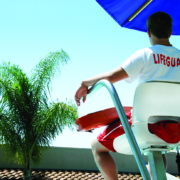Lifeguard Classes: Everything You Need to Know in 2025
Becoming a certified lifeguard opens the door to one of the most rewarding and essential professions. With water safety being a top concern across beaches, pools, and waterparks, lifeguard classes are in high demand in 2025. Whether you’re a high school student seeking a summer job, or an adult looking to enter the aquatic safety field, enrolling in a professional lifeguard training course is the first critical step.
What Are Lifeguard Classes?
Lifeguard classes are structured training programs designed to teach individuals the skills and knowledge required to prevent drowning, provide first aid, and respond to aquatic emergencies. These courses are typically offered by recognized national organizations such as the American Lifeguard USA.
Participants learn to:
- Perform water rescues effectively
- Administer CPR and AED
- Respond to medical emergencies
- Enforce pool and beach safety rules
- Recognize signs of drowning or distress
Who Should Take Lifeguard Classes?
Lifeguard classes are ideal for:
- Teens (15+) looking for summer employment
- College students working at campus pools or lakes
- Adults interested in public safety or fitness-related careers
- Recreation staff and camp counselors
- Anyone seeking to earn lifeguard certification for job opportunities
If you’re passionate about helping others, staying active, and working in a dynamic outdoor or aquatic environment, lifeguarding might be the perfect path.
Lifeguard Certification Requirements
Before signing up, check the prerequisites for lifeguard training:
- Minimum age: 15 years (varies slightly by provider)
- Ability to swim 300 yards continuously using freestyle and breaststroke
- Timed event: retrieve a 10-pound brick from 7–10 feet deep and swim back within 1 minute, 40 seconds
- Tread water for 2 minutes using only legs
These physical requirements ensure that candidates are capable of performing real-life rescues under pressure.
What’s Covered in a Lifeguard Class?
Lifeguard classes combine classroom instruction, hands-on practice, and scenario-based assessments. Here’s what a standard course includes:
Water Rescue Skills
You’ll learn to approach a distressed swimmer, perform front and rear rescues, and use rescue tubes and backboards effectively.
First Aid and CPR/AED
Training includes handling cuts, sprains, heatstroke, spinal injuries, and unconscious victims, along with CPR for adults, children, and infants and proper AED use.
Surveillance and Prevention
You’ll be taught to identify high-risk behaviors, monitor zones efficiently, and prevent accidents through proactive scanning.
Emergency Action Plans
Participants practice role-playing scenarios involving missing persons, spinal rescues, and crowd control during an emergency.
Top Lifeguard Class Providers in the U.S.
1. American Lifeguard USA
The American Lifeguard USA offers blended learning courses, combining online study with in-person training. Certification is valid for two years.
- Cost: $100–$200
- Locations: Nationwide
- Website: americanlifeguardusa.com
Lifeguard Course
Specializes in training for waterparks and resorts. Offers innovative, scenario-driven instruction.
- Cost: $125–$250
- Validity: 1-year certification
3. Lifeguard Training
Community-focused and affordable, especially for members.
- Cost: $75–$150
- Certification: 2 years
How Long Do Lifeguard Classes Take?
Depending on the format (blended vs. in-person), lifeguard classes typically range from 20 to 30 hours over several days. Some providers offer weekend intensives, while others spread training across multiple weeks.
Why Enroll in Lifeguard Classes in 2025?
The need for qualified lifeguards is rising due to increased demand at aquatic centers, summer camps, and private facilities. By enrolling in lifeguard classes, you not only gain life-saving skills but also become eligible for:
- High-paying seasonal jobs
- Flexible part-time work during school or college
- Career advancement in recreation, fitness, or emergency services
How to Enroll in Lifeguard Classes Near You
- Search online for “lifeguard classes near me”
- Check schedules at local pools, American Lifeguard Association chapters
- Inquire at community colleges or recreation centers
- Ask your current employer if they offer sponsored training
Finalization
Lifeguard classes equip you with the essential training to keep swimmers safe and respond to emergencies with confidence. Whether you’re looking for a part-time job or a career in safety, certified lifeguard training opens the door to meaningful and rewarding opportunities.

